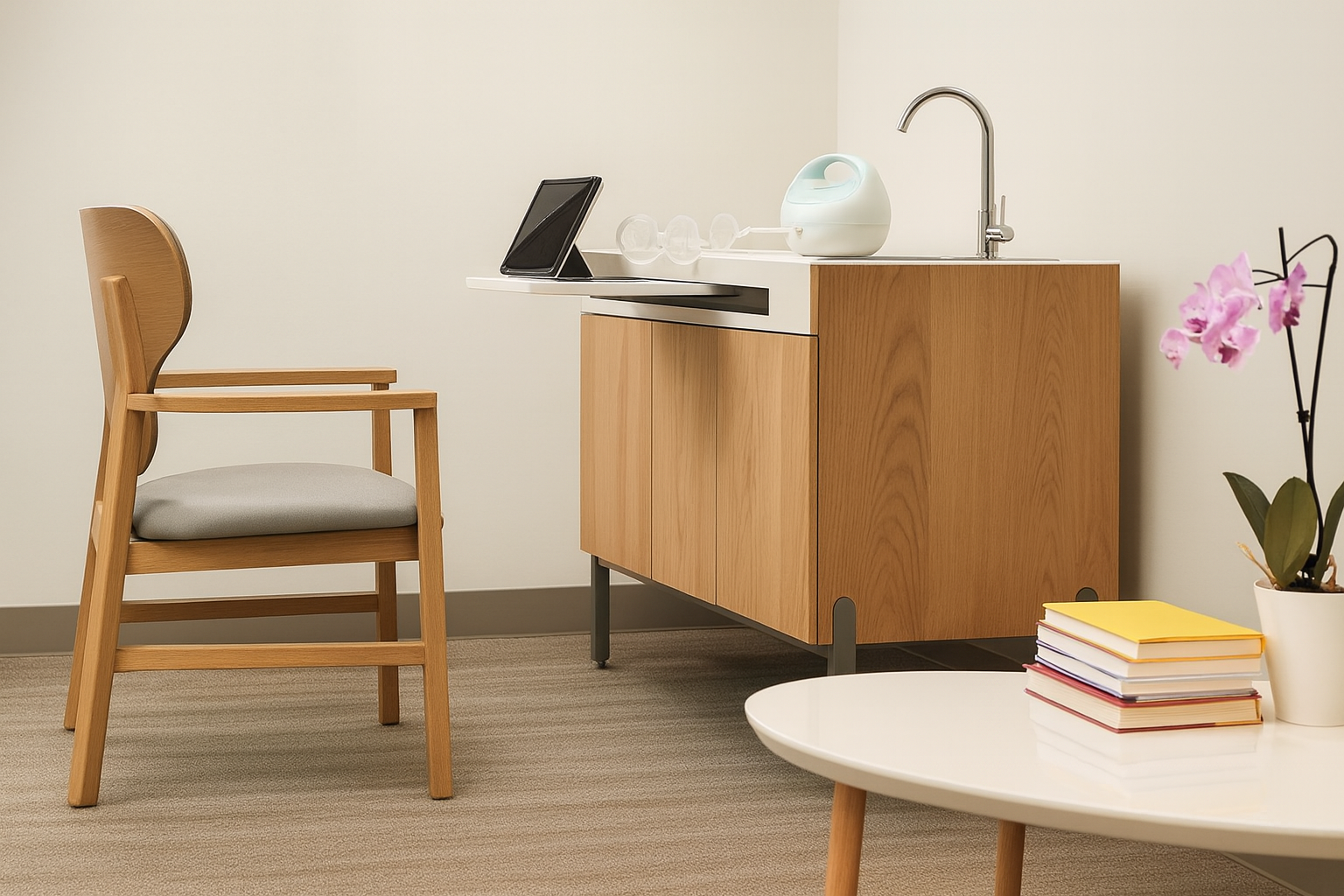Source 1: U.S. Department of Health & Human Services (WomensHealth.gov / NIH-based guidance)
The U.S. Department of Health & Human Services, via its website Women's Health, draws on National Institutes of Health(NIH) data to recommend:
At least one permanent milk expression space for every 50 to 100 women employed by the company
The NIH suggests about 6 lactation stations per 1,000 female employees, based on pregnancy rates (5–7%), a 75% breastfeeding initiation rate, and clustered pumping schedules Office on Women's Health.
They even provide a helpful reference table:
- Fewer than 100 female employees → 1 lactation station
- 250 female employees → 2 stations
- 500 female employees → 3 stations
- 750 female employees → 4 stations
- 1,000 female employees → 6 stations
Source 2: American Institute of Architects (AIA)Best Practices Guide (Lactation / Wellness Rooms)
The AIA’s guidance (a trusted design reference) offers a complementary rule of thumb:
- 1 lactation room per 100 female occupants, or alternatively, 1 per 200 total employees. It also recommends that no more than four women share one lactation unit per day The American Institute of Architects University of Houston.
Why These Sources Matter
- The HHS/NIH guideline is data-driven, rooted in actual reproductive and breastfeeding behavior statistics. It’s useful for estimating how many moms may need access at a given time.
- The AIA’s recommendation offers a practical design ratio that balances space and accessibility—especially helpful when configuring facilities.
Important to note:
The 1 per 100–150 employees ratio aligns with both sets of guidelines:
- The NIH-based concentration (6 per 1,000 female employees) approximates1 per 167, in the same range.
- The AIA’s rule of thumb (1 per 100 women or 200 total employees) also supports that ballpark figure.
Flexibility is important, adjusting based on workforce demographics, shifts, or room design reflects that actual needs may vary with specifics like number of women of reproductive age, clustered pumping times, multiple shifts, etc. Office on Women's Health The American Institute of Architects University of Houston.
Summary Table
Source
- NIH (via HHS / Women’s Health)
Recommendation
- At least 1 lactation space per 50–100 women; 6 per 1,000 female employees
Basis / Notes
- Fact-based, accounts for pregnancy and pumping prevalence
Source
- AIA (American Institute of Architects)
Recommendation
- Roughly 1 room per 100 women or 200 employees; max 4 users per room/day
Basis / Notes
- Design and facility-planning best practices
%404x.png)




%404x.png)
